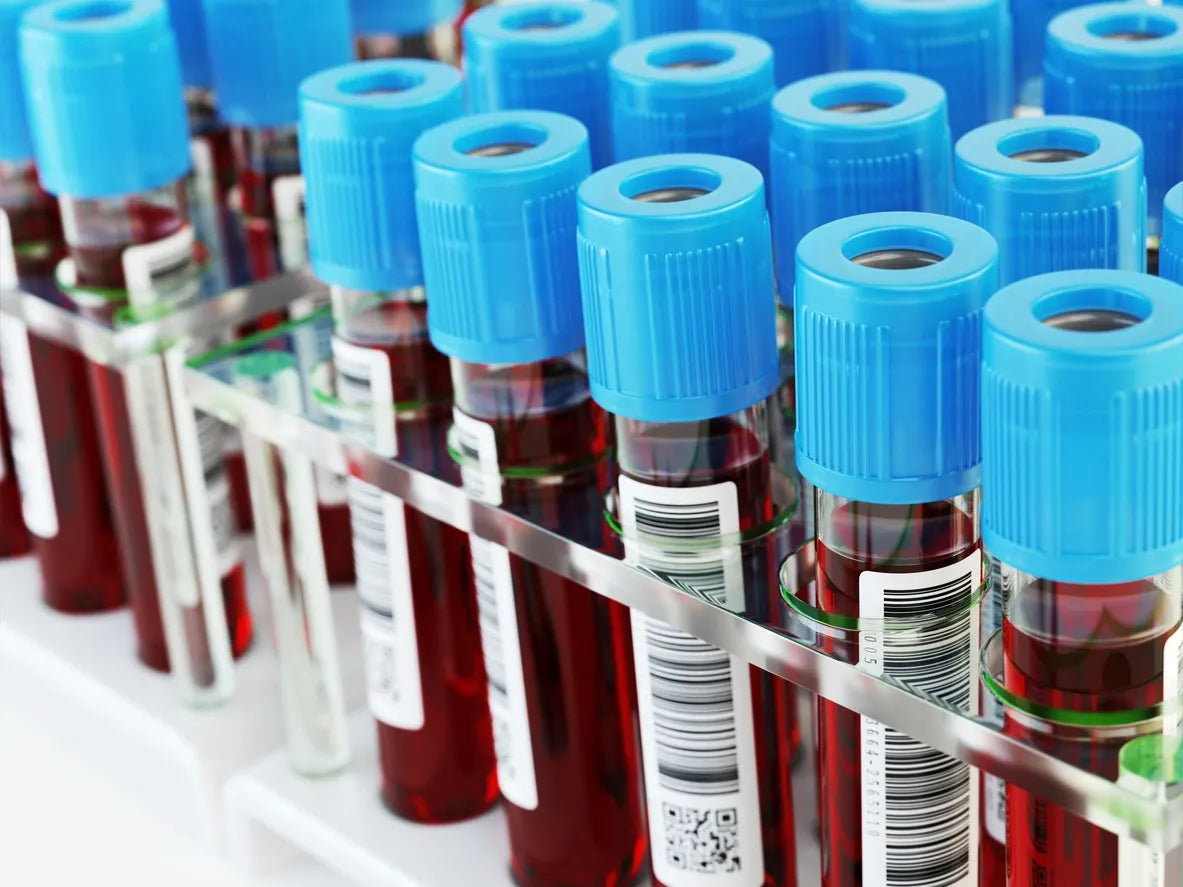
Understanding Endocrine and Metabolic Conditions
Learn about a wide range of hormonal, adrenal, thyroid, and metabolic conditions. Each article provides clear, concise information to help you better understand the causes, symptoms, and potential health impacts of these disorders.
Polycystic Ovary Syndrome (PCOS)
What is PCOS?
Polycystic Ovary Syndrome (PCOS) is a hormonal disorder that affects individuals with ovaries, typically during their reproductive years. It is one of the most common endocrine disorders, affecting up to 1 in 10 women of childbearing age. PCOS is characterized by a combination of symptoms, which may include irregular periods, ovulatory dysfunction, and polycystic ovaries (enlarged ovaries with small cysts). The exact cause of PCOS remains unclear, but it is often linked to insulin resistance and increased androgen levels (male hormones).
How Does PCOS Develop?
The development of PCOS is influenced by a variety of factors, including genetics, hormonal imbalances, and insulin resistance:
-
Insulin Resistance: Many individuals with PCOS have insulin resistance, where the body’s cells don’t respond properly to insulin. This leads to increased insulin levels in the blood, which can stimulate the ovaries to produce excess androgens (male hormones such as testosterone).
-
Hormonal Imbalances: Increased androgens in the body can interfere with the development of normal eggs in the ovaries, leading to irregular or absent ovulation, which is why infertility is a common symptom of PCOS.
- Genetics: PCOS tends to run in families, suggesting a genetic component that may predispose individuals to the condition.
Symptoms of PCOS
The symptoms of PCOS can vary from person to person and may include:
-
Irregular Periods: Individuals with PCOS often experience infrequent, irregular, or prolonged menstrual cycles.
-
Excess Androgens: Elevated male hormones can lead to symptoms such as acne, hirsutism (excessive hair growth on the face, chest, or back), and thinning hair on the scalp.
-
Polycystic Ovaries: Ultrasound imaging can reveal enlarged ovaries with numerous small cysts (fluid-filled sacs), although some individuals with PCOS may not have visible cysts.
-
Infertility: Due to irregular ovulation, individuals with PCOS may have difficulty getting pregnant.
-
Weight Gain and Obesity: Many individuals with PCOS struggle with weight gain or have difficulty losing weight, particularly around the abdomen.
- Mood Disorders: PCOS is linked with an increased risk of depression and anxiety.
Who is at Risk?
PCOS can affect anyone who has ovaries, but several factors may increase the likelihood of developing the condition:
- Family History: A family history of PCOS, diabetes, or other endocrine disorders may increase the risk of developing the syndrome.
- Obesity: Being overweight or obese can increase insulin resistance, worsening symptoms of PCOS.
- Age: PCOS typically manifests during the late teens to early 20s, though it may become more noticeable during the years when individuals are trying to conceive.
Complications of PCOS
If left untreated, PCOS can lead to several long-term health complications, including:
- Infertility: Due to irregular ovulation, individuals with PCOS may experience difficulty getting pregnant.
- Endometrial Cancer: Irregular periods or lack of ovulation can lead to a thickened uterine lining, which increases the risk of endometrial cancer.
- Type 2 Diabetes: Insulin resistance is common in individuals with PCOS, leading to a higher risk of developing type 2 diabetes.
- Heart Disease: PCOS is associated with an increased risk of developing heart disease due to higher levels of LDL cholesterol, triglycerides, and high blood pressure.
How Diet and Exercise Help Manage PCOS
Diet and exercise are essential in managing PCOS and alleviating symptoms:
- Healthy Diet: A balanced diet that is high in fiber (fruits, vegetables, whole grains) and low in refined carbohydrates (white bread, sugary snacks) can help manage insulin resistance and support weight loss.
- Exercise: Regular physical activity, such as aerobic exercises and strength training, can improve insulin sensitivity and reduce the risk of developing type 2 diabetes. It also aids in managing weight and improving mood.
- Weight Loss: Even modest weight loss can improve insulin sensitivity, regulate menstrual cycles, and improve fertility in individuals with PCOS.
How Health Force One Helps Manage PCOS
At Health Force One, we offer a comprehensive approach to managing PCOS through:
-
Education: We provide education on understanding PCOS, its symptoms, and how lifestyle changes can help manage the condition.
-
Personalized Nutrition and Exercise Plans: Our healthcare team works with you to develop tailored plans that include dietary modifications and exercise routines to manage insulin resistance, weight, and overall health.
-
Medication Management: We offer medications that can help regulate menstrual cycles, manage acne, and reduce excessive hair growth (such as oral contraceptives, metformin, or spironolactone).
-
Fertility Support: For individuals struggling with infertility, we provide guidance and treatment options such as clomiphene citrate or ovarian drilling to support ovulation.
- Ongoing Monitoring and Support: We monitor hormone levels, metabolic health, and overall well-being to ensure that you are managing your PCOS effectively.
Conclusion
Polycystic Ovary Syndrome (PCOS) is a common hormonal disorder that can affect a person’s reproductive health, metabolism, and overall well-being. With proper management, including diet, exercise, and medical treatments, individuals with PCOS can effectively manage symptoms, reduce the risk of complications, and improve their quality of life. At Health Force One, we provide comprehensive care, personalized coaching, and ongoing support to help individuals with PCOS lead healthy, fulfilling lives.


